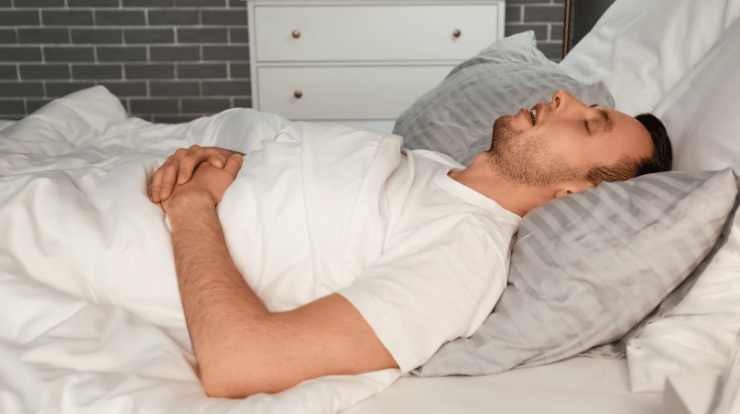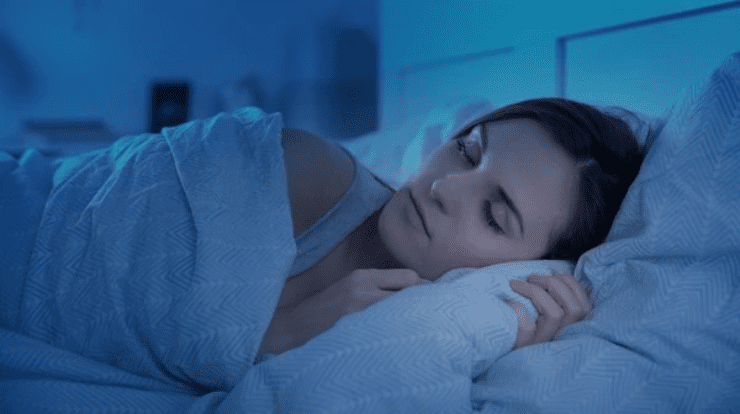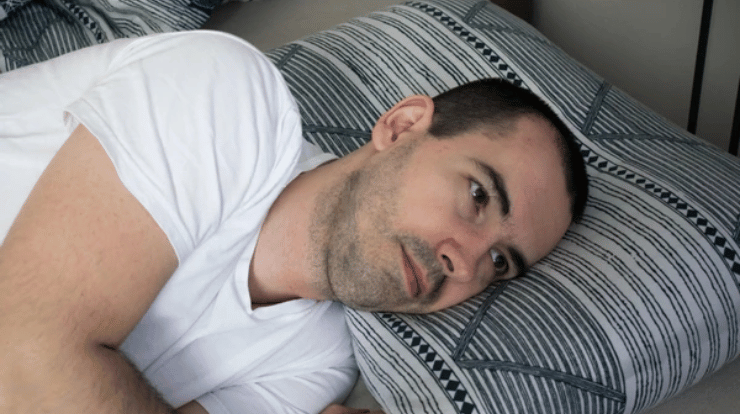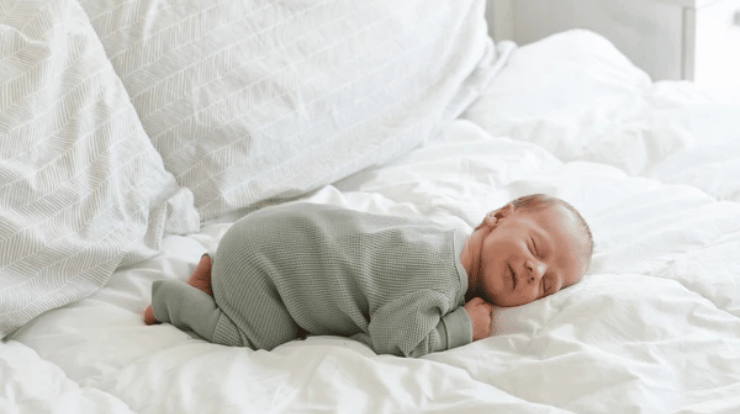
Keeping your mouth closed while sleeping is an important factor in maintaining good oral health, as it can help prevent dry mouth, tooth decay, and jaw pain. Many people who have a habit of sleeping with their mouths open may not be aware of it, and it can be caused by a number of factors such as nasal congestion, sleep apnea, or a misaligned jaw.
How to Keep Mouth Closed While Sleeping?
Many people have questions that:
- how to sleep with mouth closed without tape?
- how to keep jaw closed while sleeping?
- how to sleep with your mouth closed naturally?
Here are the top 10 ways to keep mouth closed while sleeping
1. Practice proper sleep posture:
Keeping your head and neck in a neutral position can help keep your mouth closed while sleeping. This means that your head should be level and not tilted too far forward or backward. Try using a pillow that supports the natural curve of your neck and keeps your shoulders in a relaxed position.
2. Use a dental splint or mouthguard:
These devices are designed to keep your jaw in a closed position and prevent your mouth from opening during sleep. A dental splint is a custom-made device that is worn over your upper and lower teeth, while a mouthguard is a pre-formed device that is worn over your lower teeth. Both types of devices work by keeping the jaw in a forward position, which helps to keep the airway open.
3. Try a chin strap:
A chin strap is a simple device that wraps around your head and keeps your jaw closed while sleeping. The strap is worn around the head and under the chin, which helps to keep the jaw closed and in a forward position.
4. Avoid alcohol and sedatives:
Consuming alcohol or sedatives before bed can relax the muscles in your jaw and make it more likely that your mouth will open while sleeping. Alcohol and sedatives can also cause snoring and sleep apnea.
5. Try nasal strips:
Nasal strips can help open up your nasal passages, making it easier to breathe through your nose and keeping your mouth closed. Nasal strips are placed on the outside of the nose and work by physically pulling the nostrils open, which can help to reduce snoring and sleep apnea.
6. Practice relaxation techniques:
Relaxation techniques such as deep breathing or meditation can help relax your jaw and facial muscles, making it less likely that your mouth will open while sleeping. These techniques can also help to reduce stress and promote better sleep overall.
7. Avoid sleeping on your back:
Sleeping on your back can cause your tongue to fall to the back of your throat, which can cause your mouth to open. This is because when you sleep on your back, gravity pulls your tongue and soft palate to the back of your throat, which can block the airway.
8. Use a humidifier:
A humidifier can help keep the air in your bedroom moist, which can help prevent your mouth from drying out and opening while sleeping. Dry air can cause the mucous membranes in the mouth and throat to dry out, which can make it more likely that your mouth will open while sleeping.
9. Try aromatherapy:
Certain essential oils, such as lavender or peppermint, can help promote relaxation and reduce the likelihood of your mouth opening while sleeping. These oils can be diffused in the bedroom or applied to a pillow or other sleep surface.
10. Consult with a sleep specialist or dentist:
If you continue to have difficulty keeping your mouth closed while sleeping, it is a good idea to consult with a sleep specialist or dentist who can help identify the underlying cause and provide additional treatment options. They may also be able to provide you with a custom-made mouthguard or dental splint that can help keep your jaw in a closed position while you sleep.

Is Mouth-Taping Dangerous?
Mouth taping is a method of keeping the mouth closed during sleep by using a piece of tape to physically seal the lips together. Some people use this method as a way to prevent snoring or sleep apnea. However, it is important to be aware that mouth-taping can be potentially dangerous and should be used with caution.
One of the main concerns with mouth taping is that it can restrict airflow to the lungs. If the tape is applied too tightly or if the person’s nose is blocked due to a cold or other respiratory condition, it can be difficult or even impossible to breathe through the mouth. This can lead to a lack of oxygen which can be dangerous, especially for people who already have respiratory conditions such as sleep apnea.
Another concern is that mouth taping can cause irritation or allergic reactions to the skin on the lips or around the mouth. The adhesive used in tape can be harsh and cause redness, itching, or even a rash.
It’s also important to consider that people may have different reasons for keeping their mouth closed during sleep, such as the dry mouth or dental issues. In these cases, mouth taping may not be the appropriate solution, and it’s best to consult with a healthcare professional before trying this method.
In conclusion, Mouth taping may not be the best solution for everyone, it is important to be aware of the potential risks and side effects and to consult with a healthcare professional before trying this method.
5 Best Devices to Keep Your Mouth Closed While Sleeping
1. Mandibular Advancement Splint (MAS):
This is a custom-made device that is worn in the mouth at night to hold the lower jaw forward and prevent the tongue and muscles in the jaw from relaxing and causing the mouth to open. It is commonly used to treat sleep apnea and snoring. The device is made by taking an impression of the patient’s teeth and then using that impression to create a mold of the patient’s mouth. The MAS is then adjusted to fit the patient’s jaw and teeth perfectly.

2. Tongue Stabilizing Device (TSD):
This is another type of mouthguard that is worn at night to keep the mouth closed. It works by holding the tongue in a forward position to prevent it from falling back and blocking the airway. This device is less bulky than a MAS and can be a good option for people who find the MAS uncomfortable to wear.

3. Chin Strap:
A chin strap is a simple device that is worn around the head and chin to help keep the mouth closed during sleep. The device works by holding the jaw in a slightly forward position, which helps to prevent the tongue from falling back and blocking the airway. Chin straps are relatively inexpensive and easy to use, making them a good option for people who are looking for an affordable solution to their sleep apnea or snoring.

4. Nasal Dilators:
These devices are small plastic or silicone inserts that are worn inside the nostrils to help keep the airway open. They work by gently pushing the walls of the nostrils apart, which helps to prevent the airway from collapsing and causing snoring or sleep apnea. Nasal dilators can be a good option for people who snore or have sleep apnea due to nasal congestion.

5. Pillow for Side Sleeping:
Some people find that sleeping on their side can help keep the airway open and prevent snoring or sleep apnea. Special pillows are available that are designed to keep the person on their side during sleep. These pillows can be a good option for people who find that they snore or have sleep apnea when sleeping on their back.







